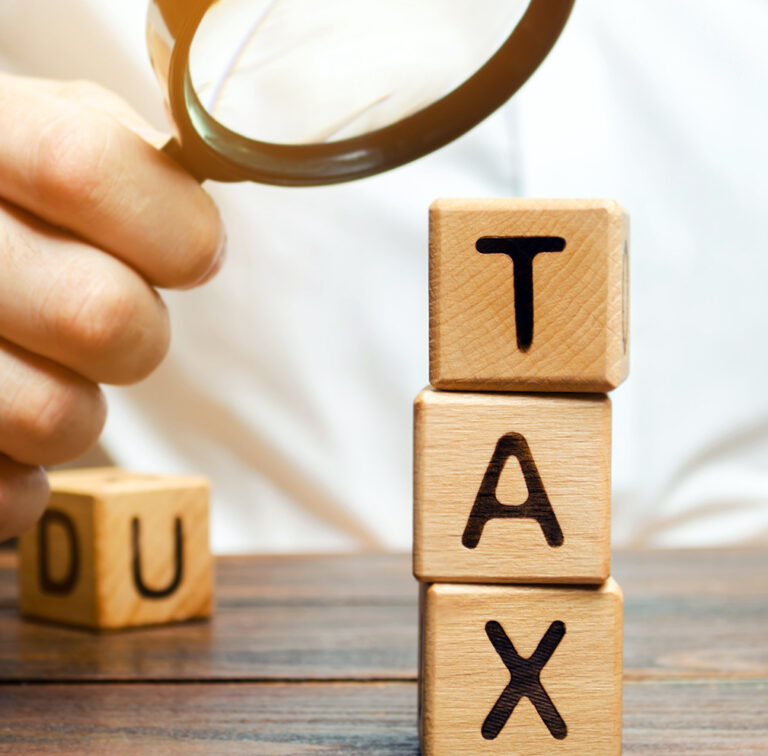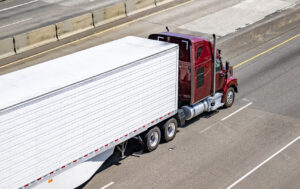Whether you’re a company driver or you own your own truck and business, income taxes can take a bite out of your take-home pay. Taxes may be inevitable, but in many cases, you have some control over how much tax you pay and when you pay it.
Keeping your income tax liability to a minimum is a process that requires your attention all year long and requires some planning and management.
How your business is structured makes a difference, too. For example, if you receive a W-2 from your employer, you probably file taxes like any other employee. If you own your truck and you receive a form 1099, you have more options. You can legally incorporate, in which case you may have to file both corporate and personal income tax returns. Or you can file as a sole proprietor — a sort of compromise in which your business and personal income are intermingled.
Many drivers and business owners choose to file individual tax returns that include an IRS Schedule C, Profit or Loss from Business.
Always consult a professional before deciding how to structure your business, and make sure each deduction you claim is valid and legal.
It’s important to understand the difference between business and personal tax deductions. Business expenses such as fuel, vehicle parts and other items would be recorded on the Schedule C form. In simple terms, the profit shown on Schedule C is counted as your personal income.
You can take deductions for your personal income too, including the standard deduction allowed by the IRS. The idea, however, is to claim all the business deductions you possibly can so that the amount of profit you report is as small as possible. Every dollar you can legally subtract reduces your tax liability.
Keep in mind that capital expenses — those for purchase of your truck, trailer and some other property — are credited due to a depreciation schedule. Rather than deducting the purchase price of your truck, for example, you might claim depreciation. Your tax preparer can help you determine how much depreciation you can claim. If you sell equipment, your tax preparer needs to know that, too.
Other expenses, however, are fully deductible. Keep track of costs for insurance, including occupational accident, bobtail and liability.
Any fees or taxes paid to register your equipment, such as license plate fees, heavy vehicle use tax (HVUT), permits and ad valorem taxes are deductible.
Other fees you pay can also be deductible. If you are charged fees for using your ATM or fuel cards, for example, keep a record. If you belong to trade groups such as the Owner-Operator Independent Drivers Association (OOIDA), your dues are deductible. Don’t forget to include any costs for DOT physical exams or fees to renew your CDL, add endorsements, or background checks for hazardous materials or TWIC cards.
If you subscribe to a load board or pay brokerage fees, deduct them. Any fees paid to incorporate your business, or even fees paid to consult an accountant or attorney, are deductible.
Of course, costs for parts and repairs are deductible, but don’t forget truck washes, wheel polishing or expenses to detail your equipment.
Many of your road expenses are deductible, too. Costs for parking, scales, tolls and showers are all deductible. Cleaning supplies like window cleaner and paper towels are deductible if the products are used for the truck. The same applies to tools you need for the job.
If your truck is in the shop and you need a hotel room, rental car or just need to do some laundry, those expenses are deductible. If you travel with a dog that provides security for the truck, you can deduct expense for food and other items.
Expense for electronics you use in your business are also deductible. That includes your ELD and payments for satellite communication devices, and it can also include the monthly cost for cellphone service or a land line installed at home. If you use the internet in your business, deduct that cost, too. Even entertainment items like satellite TV or radio are deductible.
The costs for any buildings or property that you rent, such as a garage or parking area, are deductible. The IRS also allows a deduction for a portion of your home used for your business, including utilities, security and repairs made. Your tax advisor can help you calculate this.
Mileage on your personal vehicle can also be deductible at a rate per mile set by the IRS each year. You must keep track of the miles used for business.
Expenses for items you may not have even thought of may be deductible, too — sheets, blankets and pillows for the bunk in your truck; locks or securement equipment; and coolers, refrigerators or other appliances used in the truck.
Disposable items, such as trash bags, air fresheners and batteries are deductible. If you carry exercise equipment, lawn chairs or other items for personal use, the cost may be deductible.
Don’t forget the cost of safety items used on the job, like hard hats, gloves and work boots. If they are used for your business, they should be deductible.
It’s a good idea to save receipts for any items you purchase throughout the year. Writing short notes on the back of receipts can help you remember the business use of the item you purchased. It may also help in the event the IRS audits your return.
You can deduct a portion of the cost of meals and incidentals while on the road. Most drivers find it easier to claim the per diem allowed by the IRS, which specifies a daily amount for these expenses. If you choose the per diem, you won’t need to save receipts for meals and incidentals — but you will need to keep track of how many days you were on the road. The per diem is only paid when you are away from home.
If you aren’t sure if an expense is deductible, keep a record and save the receipt so you can ask your tax preparer.
No one likes paying income taxes, but with some planning and careful management, you can keep yours to a minimum.
Cliff Abbott is an experienced commercial vehicle driver and owner-operator who still holds a CDL in his home state of Alabama. In nearly 40 years in trucking, he’s been an instructor and trainer and has managed safety and recruiting operations for several carriers. Having never lost his love of the road, Cliff has written a book and hundreds of songs and has been writing for The Trucker for more than a decade.









Thanks for this article. What about reefer fuel taxed by states? How do we get the credit we paid for reefer fuel? Any advice would be appreciated. Please email me at schessmo40@gmail.com
Thanks
Sandra P.